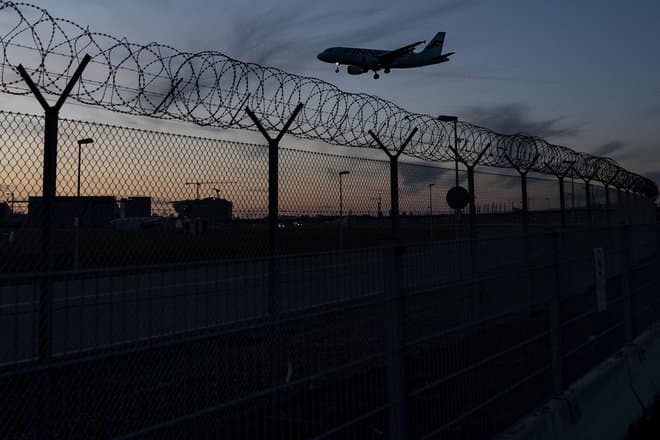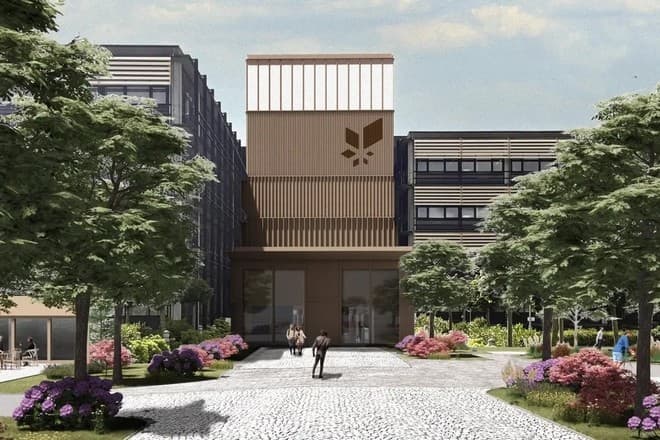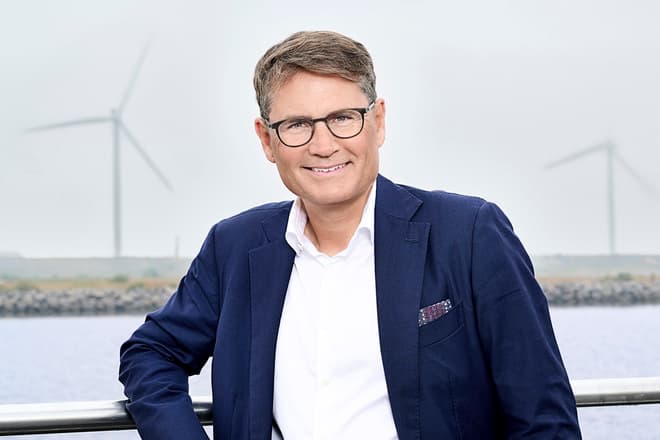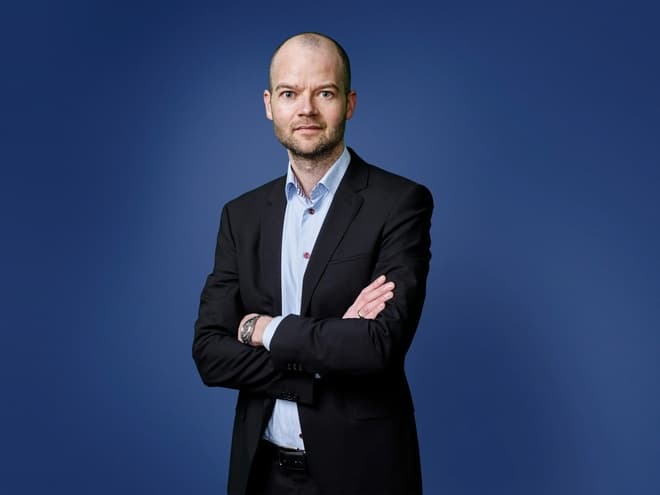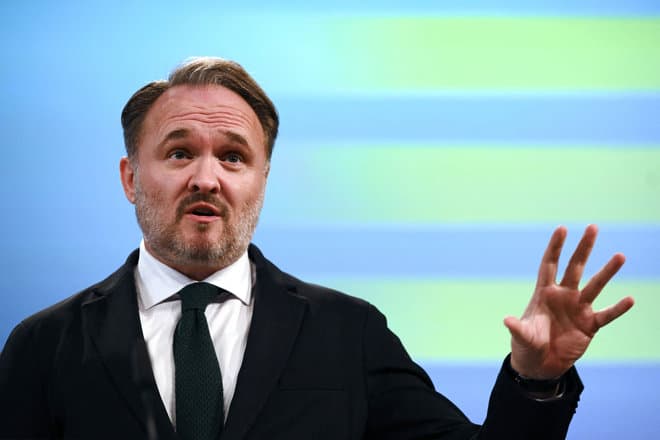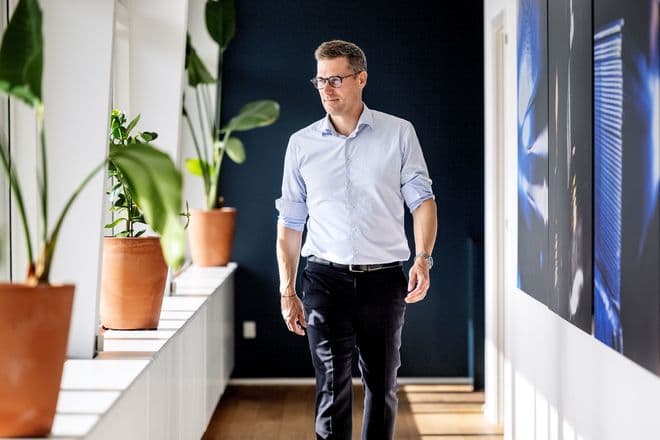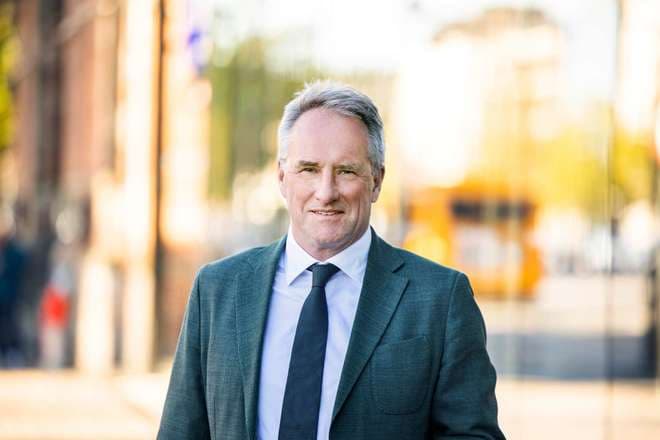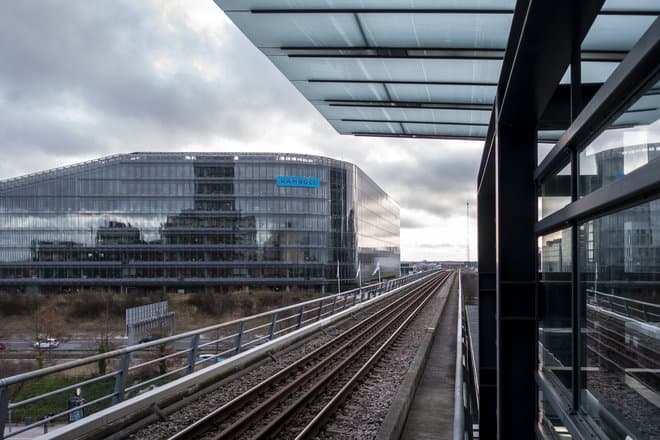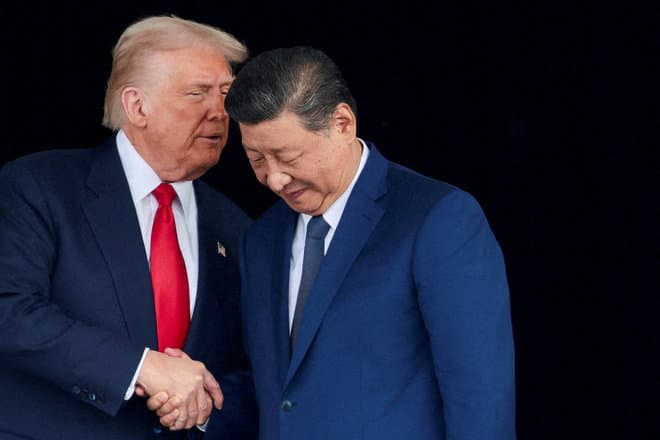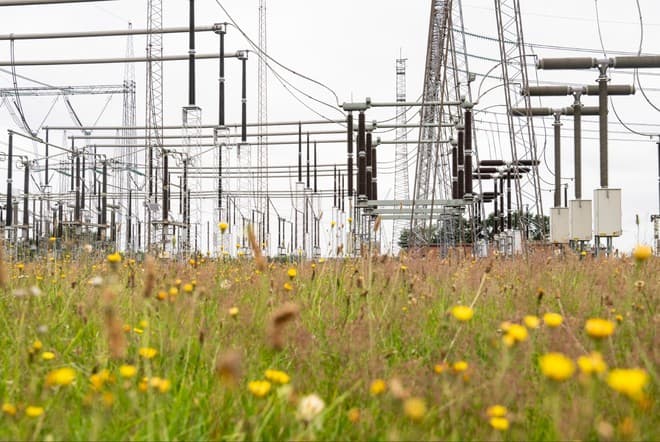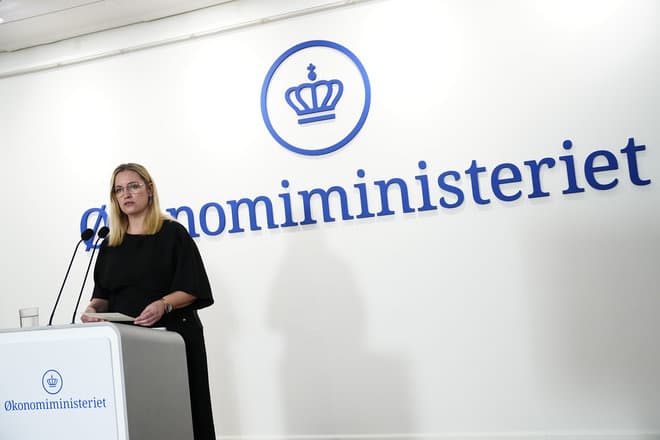
Green transition is rarely a winning issue. And it is wearing on both mayors and city councils, who are supposed to be at the forefront of the project.
In a DR poll from 2021 among local politicians, 75 percent responded that they experienced conflict with citizens to a great extent or to a very great extent regarding projects with wind turbines, and solar cell systems are unlikely to trigger more Christmas cards.
Municipalities are struggling to gain popular and political support for the necessary number of wind turbines and solar cells, and at the launch of the government's rural-district proposal, the country's Minister of Climate and Energy Lars Aagaard (M) encouraged more municipalities to get on the field, but he also sent a thank you to the municipalities that have so far pulled a large part of the load.
- We owe a big thank you to the municipalities that have been at the forefront for a long time, said Lars Aagaard at the press conference.
Ringkøbing-Skjern, Holstebro, Thisted, Lemvig, Jammerbugt and Skive are among the top scorers in green electricity. They also have in common that their mayors are not running again for KV25.
Battlefield and coup attempt
The most controversial municipality in the green transition is in many ways Ringkøbing-Skjern. Around ten percent of the total amount of electricity from wind turbines comes from the municipality, which is consistently at the top of the lists of suppliers of green electricity.
However, Ringkøbing-Skjern has also hosted the most heated debate about the green transition. If you drive through the municipality, you will not only come across wind turbines and solar cells, but also wrapped straw bales and signs with the text “No thanks to iron fields!”
Mayor Hans Østergaard (V) was first elected to the then Videbæk City Council in 1997 and has been mayor since 2018. Apart from a voluntary break from 2009 to 2013, he has been active in local politics.
He will turn 68 in April and has decided that it is time to pass on the post to new forces.
However, it is not because he lacks the desire, and it is certainly not the green agenda that has scared him away from seeking re-election.
- On the contrary. It has had the opposite effect, because it is an agenda that I think is extremely important, and that I would like to help continue and help lead to the goal, says Hans Østergaard.
Otherwise, there has been no shortage of resistance against the mayor from both angry citizens and worried party members.
In the spring of 2024, his own party members brought Mads Fuglede, who was still a member of Venstre at the time, into the running as the new mayor, but the coup attempt failed. Today, Mads Fuglede is still running as a mayoral candidate, but now for the Denmark Democrats, and he has made the fight against solar cells his top priority.
However, this has not made Hans Østergaard shake his hand.
- The citizens know where they have me and what I stand for. I will not change myself or my views just because we are now approaching an election, he says.
The finish line moved
Ringkøbing-Skjern's leading position was established before Hans Østergaard took office as mayor. In the autumn of 2007, the first steps were taken towards a vision that would ensure that the municipality was self-sufficient in renewable energy by 2020.
- We are the country's geographically largest municipality, and we are located on the North Sea with good wind conditions. In addition, we have Vestas, so the vision at that time was also related to the fact that we wanted to create good conditions for our companies, says Hans Østergaard.
Together with the rest of the city council, Hans Østergaard travelled around the municipality by bus and visited various sites that could be suitable for wind turbines.
Subsequently, 21 areas were designated for projects, of which 20 have now been realised. Since then, only one additional area has been added. When Hans Østergaard became mayor in 2018, the municipality's energy vision had therefore almost been achieved.
- Before the 2021 election, everyone agreed that we had done our part. There were still a few small projects and some replacements of existing wind turbines in progress, but that was how it had to be.
But then the war in Ukraine came, and new goals were adopted in the Folketing, which meant that the amount of green energy on land had to be quadrupled. At the same time, the issue of security of supply became a local issue, and so did the climate crisis.
- The finish line moved. And that meant that we in the city council also had to move. The climate crisis was not new, but we could see more and wilder incidents that confirmed to us that it was something we had to take seriously, and an area where we could contribute, says Hans Østergaard.
Raw and shrill debate
In recent years, opposition to solar cells in particular has increased and has received more attention. The tone has become harsher, and the debate more implacable.
- I have never in the almost 24 years that I have been in local politics experienced the tone of the debate so raw. It has been a very shrill debate, especially on social media, says Hans Østergaard.
As a politician, it can be a difficult debate to find balance in. Because even though you have to listen to the frustrations of the citizens, Hans Østergaard also acknowledges a silent majority.
- Some citizens dedicate all their energy to it, but how many actually speak out? We can see that the same people are recurring in many contexts, and in reality, it is only a few citizens who offer resistance.
The debate is characterized by many emotions, which makes it difficult to penetrate the municipality's arguments, Hans Østergaard experiences.
- When we have tried to reject incorrect claims with facts and information, several people, probably against their better judgment, maintain what suits their agenda. Some have climbed so high up a tree and have put so much energy into it that they have to maintain their position in order not to lose face.
Hans Østergaard points, for example, to the media's coverage of the solar cell debate.
- These are always pictures taken from above of a property that is plastered with solar cells all around. They exist, but I would almost eat my old hat that in cases where you live in the middle of it, you also have an ownership stake in the project, he says.
The debate therefore often becomes skewed, Hans Østergaard believes.
- We need to find space for 1,000 hectares of solar cells, and we have 100,000 hectares of agricultural land in the municipality. So we are talking about one percent of the agricultural land that we would like to use for solar cells, and I think we can succeed without bothering many people.
Hans Østergaard is annoyed that we have not succeeded in convincing the critics, just as he is sad that the dialogue has ended as it is.
- But I will never change my policy and position on what I believe is the right thing to do, based on a few people who are responsible for a raw debate on social media.
Demands courage to lead a green agenda
Hans Østergaard has been a central figure in the municipality's climate policy in recent years - and partly a reflection of the critics' frustration. But from next year, new people will be drawing the lines on the municipal map. And that requires courage.
- It gives rise to some fierce discussions, the tone has just become harsher, and it has cost battles every time we have got a wind turbine up and running. You have to be brave to lead an energy agenda.
The municipality wants to establish a Power-to-X plant that can create development and growth for the municipality, but that requires a lot of new energy plants. In June last year, the city council was again on a bus tour to look at the areas where applications for new renewable energy plants had been made.
It may therefore be obvious to draw a parallel to the bus tour almost 18 years ago, which was the basis for the strategy that has brought Ringkøbing-Skjern to the forefront of the municipalities.
- When I look back on that bus tour, I am proud of what we have achieved. I am extremely grateful for the unity and cooperation we have had in the city council during my time as mayor, and it has been crucial for us to be able to make the necessary decisions for the green transition.
- I will be extra proud if we again succeed in establishing new facilities for a future Power-to-X facility. I am absolutely convinced that this is something we will need in the future to ensure development.
In October, a majority at a general meeting pointed to the outgoing vice-chairman of Agriculture & Food, Lone Andersen, as the party's new leader, even though Hans Østergaard and five other city council members had pointed to group chairman Erik Viborg.
Lone Andersen has previously stated that there is a need for a "time-out" in relation to where renewable energy plants should be located in the future, while Erik Viborg, on the contrary, has spoken about the necessity of still thinking in terms of wind, solar and Power-to-X.
The article was originally published in DOI.dk's sister media Kommunen.dk.
Text, graphics, images, sound, and other content on this website are protected under copyright law. DK Medier reserves all rights to the content, including the right to exploit the content for the purpose of text and data mining, cf. Section 11b of the Copyright Act and Article 4 of the DSM Directive.
Customers with IP agreements/major customer agreements may only share Danish Offshore Industry articles internally for the purpose of handling specific cases. Sharing in connection with specific cases refers to journaling, archiving, or similar uses.
Customers with a personal subscription/login may not share Danish Offshore Industry articles with individuals who do not themselves have a personal subscription to Danish Offshore Industry.
Any deviation from the above requires written consent from DK Medier.



